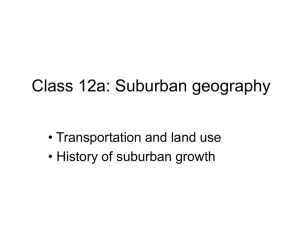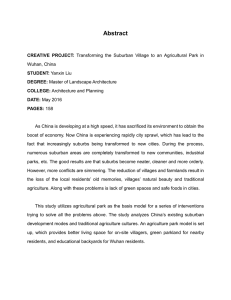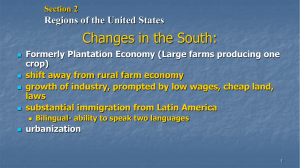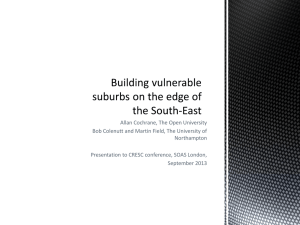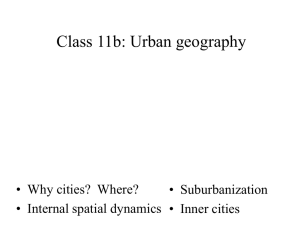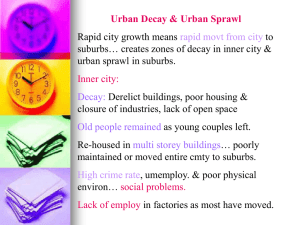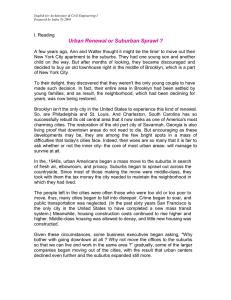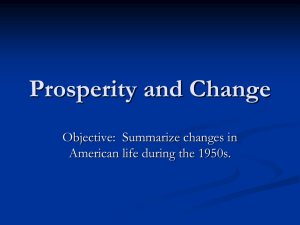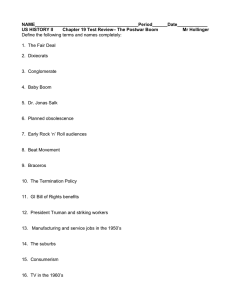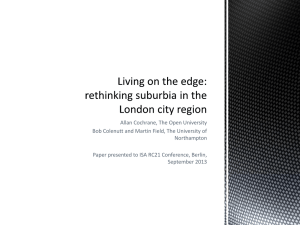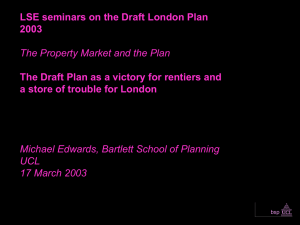Class 12a: Suburban geography • Transportation and land use
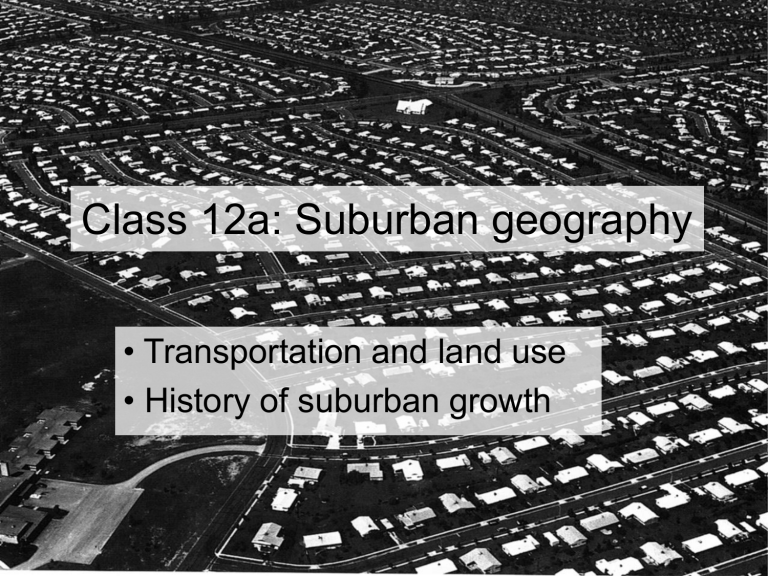
Class 12a: Suburban geography
• Transportation and land use
• History of suburban growth
History of the suburbs (U.S.)
• Tied to transportation technology
– One hour commute
• And federal subsidies
– Mortgage deductions, veterans’ loans
Transportation and urban land use
• Walking, horsecars (to 1888)
– High density downtown
• Streetcar, commuter rail (1888-1920s)
– Interurban electric rail, subways/elevated
• Recreational auto (1920s-1950s)
– Buses feed streetcar lines
• Freeway Era (1950s-)
Beacon Hill, Boston
Philadelphia row houses
Rainbow Row, Charleston
History of the suburbs (U.S.)
• Residential land uses
– Escaping urban ills, spreading out
• Retail followed the market
• Industry followed the employees
– More space, new buildings
– Good transportation access
History of the suburbs (U.S.)
• Edge cities
– At a new kind of crossroads
– Subcenters instead of CBD
– “Shadow governments”
• Leapfrog development
– Expensive utilities
– Inefficient land use
Suburbs and inner cities
• Suburban residents and jobs came from somewhere
• Growth now limited to suburbs
• Segregation by class, race
• Falling tax income, rising service needs
• Spatial mismatch: jobs moved, poor didn’t
Suburbs and inner cities
• But agglomeration still matters
• And immigrants still arrive in cities
• Increasing redevelopment of downtowns
– LoDo in Denver
– Jack London Square in Oakland
– Union Pacific Railyards in Sacramento
